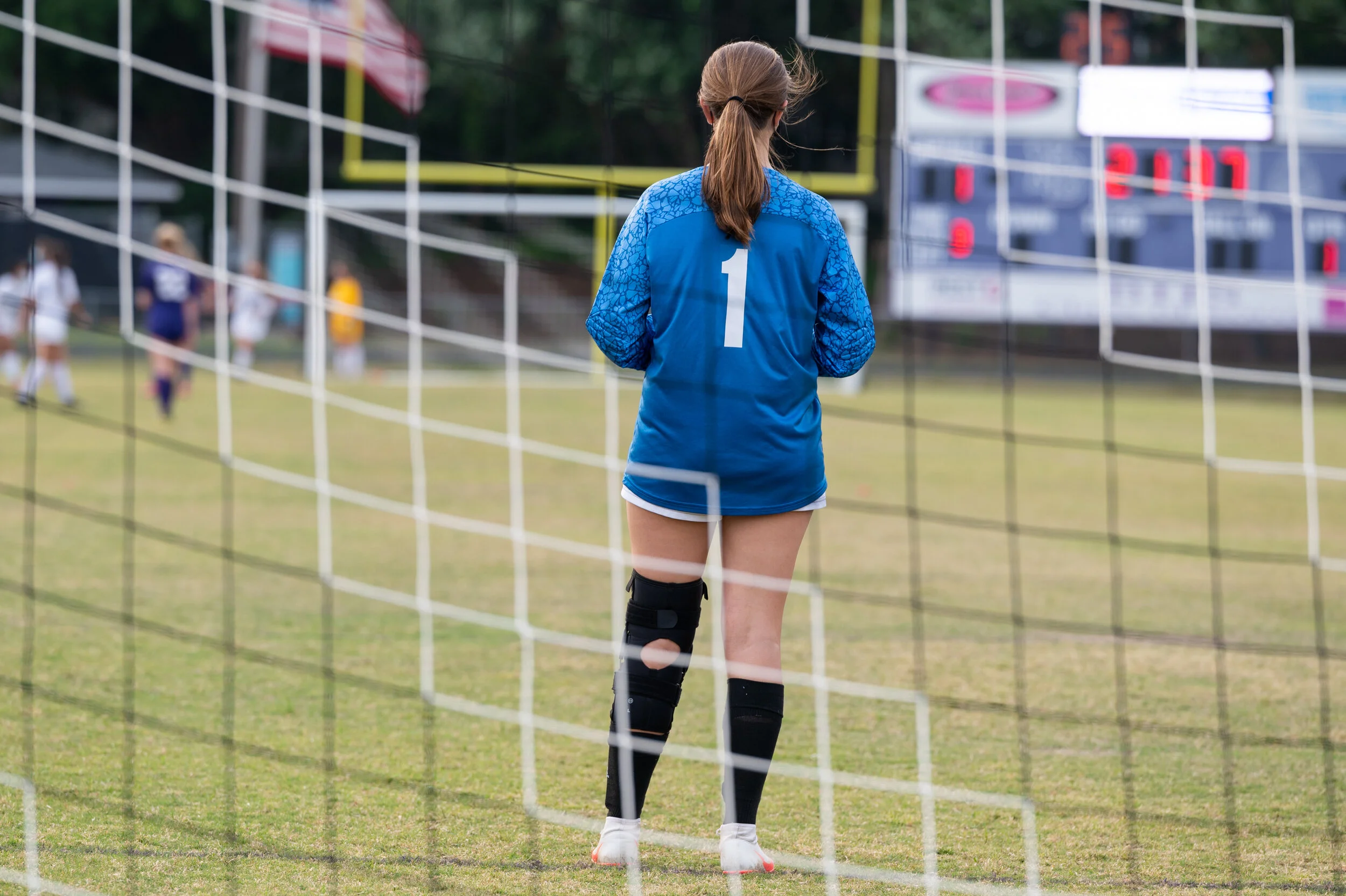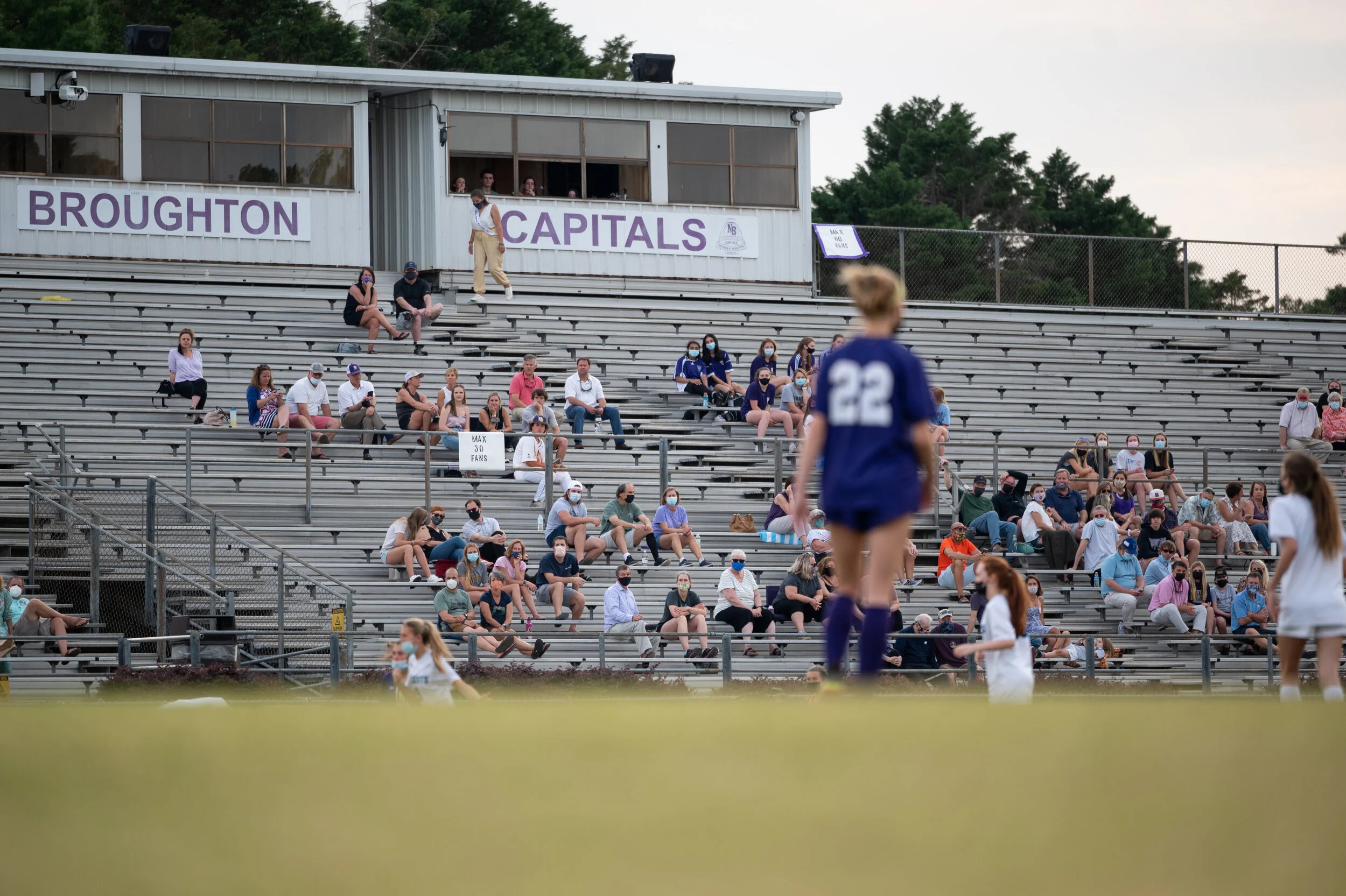Overhaul of high school sports governance presented in Senate
By Dallas Woodhouse, The Woodshed, Carolina Journal
On Tuesday, the N.C. Senate Education Committee presented a bill that would effectively end the High School Athletic Association's role in supervising high school athletics, a role the organization has held since 1913.
The PCS for House Bill 91, Accountability and Fair Play in Athletics was presented for discussion and is the result of a months-long investigation into the non-profit that oversees high school sports in North Carolina, the North Carolina High School Athletic Association, NCHSAA. The bill would dramatically overall the governance of high school sports in North Carolina.
“The legislation put forward during today’s committee meeting is designed to create transparency and accountability throughout high school athletics in North Carolina,” said Senator Vickie Sawyer, R-Iredell.
“Transparency and accountability which we as legislators have been asking for from the North Carolina High School Athletic Association for months but have not received.”
“It is evident by the actions of NCHSAA that there needs to be a dramatic change in leadership, management, and process,” State Senator Tom McInnis (R-Richmond) told CJ. “This bill does what is needed to protect high school students, their parents, coaches, and our public schools’ athletic programs with their limited budgets.”
NCHSAA leaders have defended the organization and called the accusations surrounding the organization “disheartening and infuriating.”
"This is essentially the death penalty," pointed out Sen. Jay Chaudhuri, D-Wake."Is it your opinion that what you have discovered about the North Carolina High School Athletic Association warrants such a drastic approach, which is to actually kill the organization and replace it with something else?"
“The short answer is ‘yes,'” Senator Todd Johnson, R-Union, told Chaudhuri.
The NCHSAA has amassed $42 million dollars in total assets, by far the most of any high school sports oversight board in the country, drawing attention to its operations, criticism about transparency, and calls for reform.
Comments from state education leaders in early June, made it clear that movement was building on Jones Street and at the Department of Public Instruction to drastically change high school sports oversight in the state.
“The North Carolina High School Athletic Association has been ruling over our high school athletic programs with an autocratic fist for far too long, “said Sawyer.
“In the past five years alone, they’ve levied over $400k in fines against our schools while amassing over $40M in assets as of 2019,” she continued in an interview with CJ. “Despite their deep pockets, they’ve only awarded a total of $40,500 in scholarships to 35 high school students. The disparity between their wealth and the lack of support for our schools is staggering and in desperate need of oversight – which is why we’ve brought this legislation forward today.”
The proposed legislation would end the NCHSAA’s administration of high school sports in N.C. and replace it with a 17-member commission. The Commission would be housed under the Department of Administration but would operate independently.
Of the 17 members, nine members would be appointed by the Governor, four appointed by President Pro Tempore of the Senate, and four appointed by the Speaker of the House.
“After a long review of the finances, operations and practices of the NCHSAA, we are moving forward with a model that will protect the integrity of the high school sports model, will protect the rights of students and set a level playing field for schools across North Carolina, while protecting taxpayer resources,” said Sen. McInnis.
All members of the commission would be superintendents, principals, athletic directors, or full-time employees who are coaches. Each commission member would serve a four-year term.
The Commission would be required to fulfill certain powers and duties, including creating gameplay rules, establishing athletic divisions, dividing schools into conferences within divisions, establishing schedules and requirements, and requirements for coaching, officiating, and sportsmanship.
The committee would be prevented from fining schools for rules violations and instead would be charged with establishing a demerit system for infractions punishable through non-monetary penalties. The commission would oversee a state-funded student-athlete catastrophic insurance policy and would be funded by admission fees to state tournaments and per-student fees. Fees would be automatically reduced once a modest reserve account is established.
The bill would restrict the commission from soliciting grant funding and sponsorships for purposes other than state tournaments, providing grants to schools, providing scholarships to players, retaining gate receipts other than from state tournaments. The Commission would not be allowed to control the intellectual property of schools, such as logos and mascots, and audio and visual rights to games.
The bill would leave the current NCHSAA in control through the coming school year, but the commission rules must be adopted by Feb. 15, 2022.
“Our goal in bringing forward this legislation is to restructure the regulation of high school interscholastic athletics in North Carolina,” said Sawyer “This restructuring is intended to bring much-needed transparency and accountability to high school athletics which have been missing for quite some time.”
Four private schools that are currently allowed as members of NCHSAA and allowed to compete for championships would have to compete in the private schools league. Those schools could play against public schools, but couldn't join the new associations and compete for championships, which Cardinal Gibbons in Wake County and others do. Gibbons played and lost the 4-A Football championship the last two years and 3-A Charlotte Catholic won this year.
The only private schools currently allowed to join the NCHSAA are non-board parochial schools. There are four non-boarding parochial schools in the organization today - Bishop McGuinness, Cardinal Gibbons, Charlotte Catholic, and Christ the King. Additionally, Eligible home school students would be able to compete with their base public schools.
It is unclear what, if anything, the NCHSAA would be required to do with its massive 42-million-dollar reserve account. The committee said prior to 2019, the NCHSAA was required by its own by-laws to return all assessments to member schools upon dissolution of the organization, but that was changed in 2019 to allow the organization to donate its funds to other non-profits. The organization could also choose to become a grant-making organization in support of high school sports and athletes until its 40 million dollars in assets are spent.
The bill was presented to lawmakers Tuesday for discussion and no votes were taken. The bill may be heard again Wednesday in the Senate Education Committee. Bill sponsors also say they're working with the Department of Public Instruction and other stakeholders for input on the bill.



